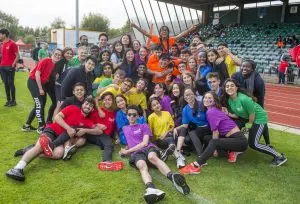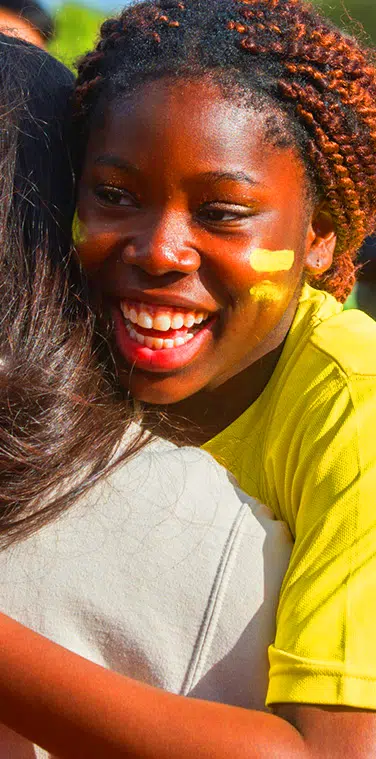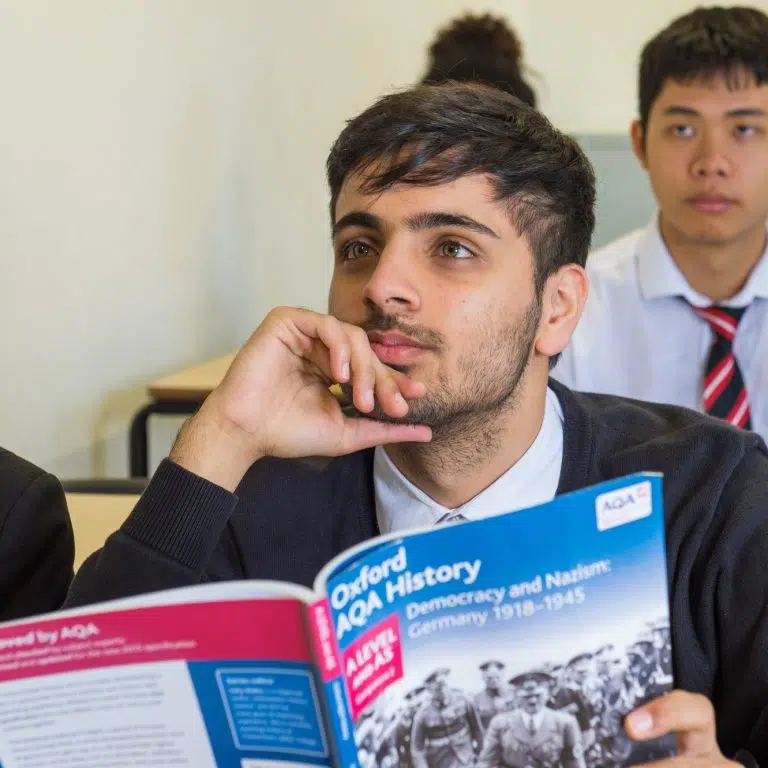You could be forgiven for thinking that something which affected all nations in a devastating and long lasting manner, might bring them together in a spirit of co-operation and collaboration. And indeed, there are fine examples of nations coming together to combat a global pandemic through the dissemination of information, research into vaccine development, sharing of data and best practice and even donation of resources to nations less able to finance a response to the virus. However, in the background (and often the foreground too!), issues and conflicts have continued to rumble which threaten to push nations further apart. Brexit in the UK, political changes in China and Hong Kong and now, more recently in Russia and Ukraine, to name but a few, would appear to be dividing rather than uniting nations.
On this, the United Nations International Day of Education, it is worth reflecting on the challenges to international education in helping to change the future division of nations and to transform young people’s views on each other and the roles that we must play in a global society.
In her blog on International Education on the QS Top Universities website, Stephanie L suggests that international education “signifies a new strategic direction in comprehensive education where it broadens perspectives, builds diverse connections and encourages innovation and ideas across borders.”. She goes on to state that, “during your studies, you’ll automatically become part of a genuine and dynamic international community, where you’ll have invaluable access to a wide range of cultures, faiths, languages and perspectives.” This is, I am certain, the aspiration of all UK boarding schools who now admit more students from a wider variety of nationalities and backgrounds than at any time in the past. But it is not as simple as putting young people together and hoping that they will ‘rub along’ and come out the other side as better global citizens. The situation is much more complex and proactive curriculum and pastoral management must be entered into in order to allow students the opportunity to share and receive opinion in an open and safe manner. Anyone working in secondary education or with teenagers of their own, will quickly recognise the passionate adherence to a newly learned philosophy and perspective which is championed ferociously and sometimes at the expense of some of the ideals set out by Stephanie L. Therefore, truly international education needs to facilitate challenge and opinion, whilst fostering respect and tolerance rather than simply allowing automatic absorption from those sat next to you in class or in the boarding house.
Schools are ideally placed to address these wider issues and in focusing on debate and discussion and allowing a forum for expression, opposing opinions can be listened to and heard. It is a difficult path to tread and schools, maybe, can be forgiven for hiding from these debates when teachers themselves have little international experience. By adhering to the traditional, and failing to embrace the new and changing issues that face young people, we perhaps prevent ourselves from delivering the best of international education. Perhaps by educating the educators to deliver an international perspective and through the promotion of diversity in our staff bodies, we can make the task a little easier.
A study by the Institute of International Education in 2007 found that students who had studied internationally were significantly better placed from a skills perspective to be able to deliver what employers are looking for in the 21st century. 15 key skills were identified and amongst them is listed ‘intercultural skills’ defined as, “the ability to understand and respect different cultural contexts and viewpoints. Includes an openness to new ideas and ways of thinking.”. Studying abroad should, therefore, enable young people to become ‘interculturally skilled’, but perhaps only if the culture in the school is truly diverse and the philosophy of the school is one which actively promotes cultural understanding. In order to achieve this, schools and students need to accept that according to the IIE, their international education is “not merely a “fun experience” but more importantly a key strategic decision toward building a marketable and valuable skill set”. The benefits to the individual and to society should be obvious, but recognising intercultural skill development as being as important as academic achievement is fundamental to achieving these benefits.
The recent global pandemic has created an environment in which one to one personal interaction between students has been severely limited and replaced with the less than satisfactory constraints of isolation, quarantine and communication through remote methods. There is no doubt that technology has allowed education to continue for many when perhaps it would have been abandoned without it, but it has and is, also contributing to a reduction in interpersonal cultural experience and a loss of opportunity in terms of personal collaboration and understanding. The language, respect and tolerance levels displayed in online communication are very different to those required for face to face interaction and this is leading to a backward step in terms of transforming young people into global citizens. The anonymity of the internet and social media runs the risk of reinforcing entrenched opinion rather than opening minds to other points of view.
At the risk of appearing a luddite, it would be a fair question to ask whether the ‘transforming’ of education might indeed require a little ‘resetting’ to a time before the onset of mass social media uptake and a reversion to an emphasis on live and present personal interaction. International education within a boarding school is still a place where this can be done safely and where the best opportunity for the development of global citizenship currently exists, for those that will carry the responsibility for our future.
Gareth Collier – Principal, Cardiff Sixth Form College
Categories: Articles Uncategorised





